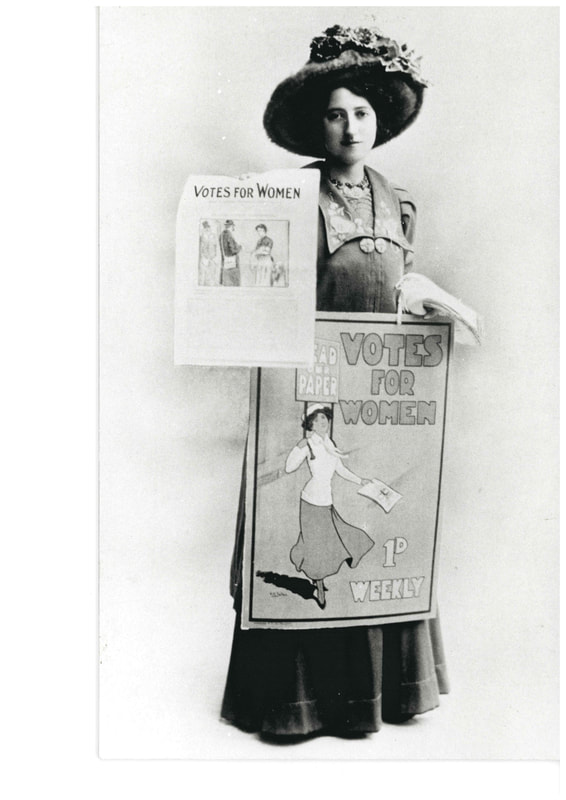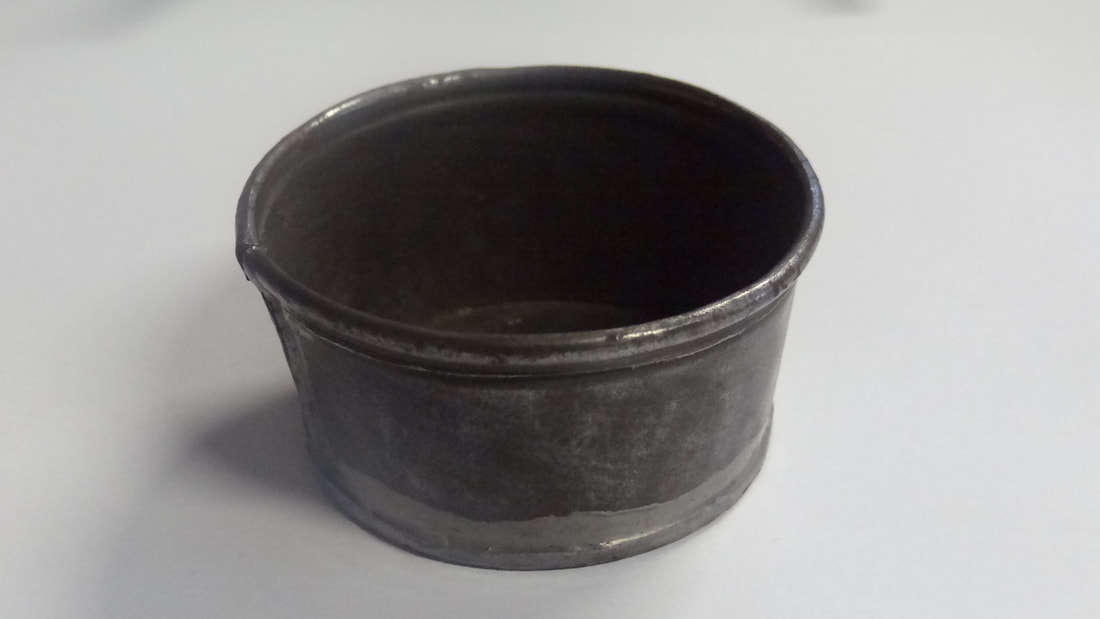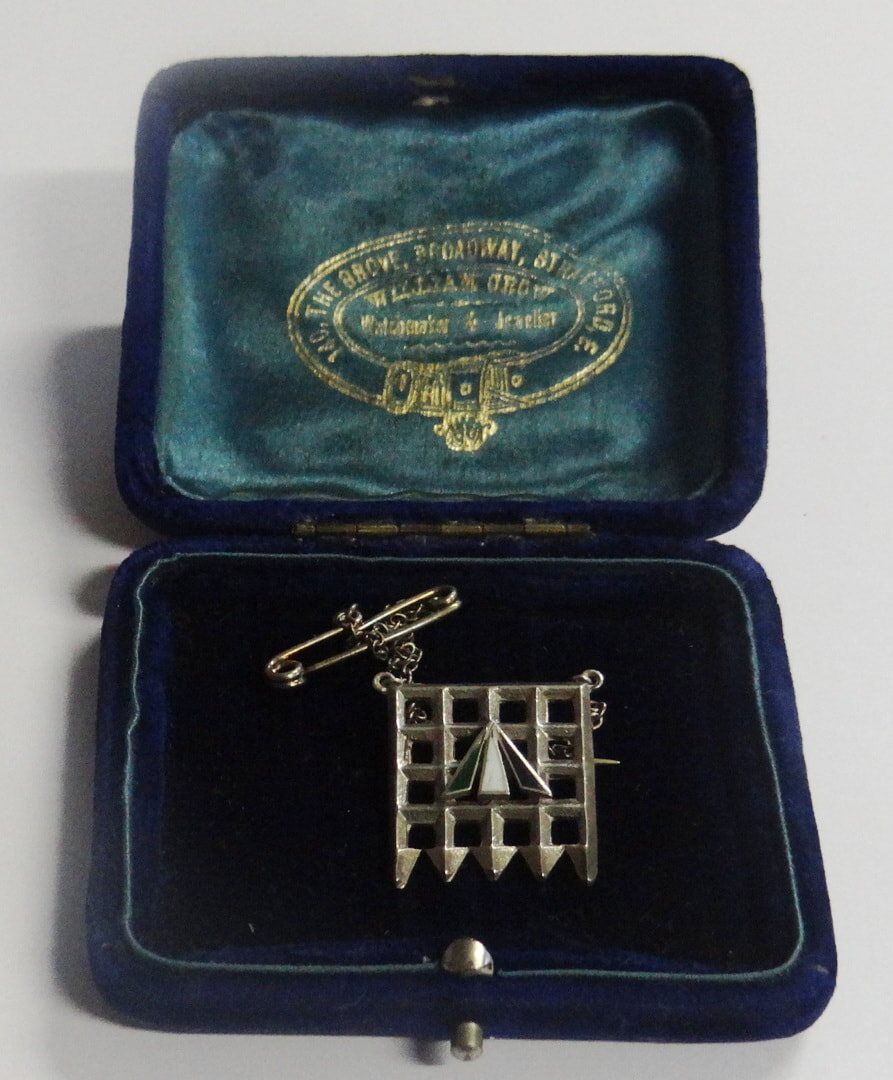|
Grace Chappelow was the daughter of John, a chartered accountant based in Lincoln's Inn, central London, and Emily. The couple had two children: Claude, 1880, and Grace, 1884, who attended the North London Collegiate School, founded by Frances Buss, then located on Camden Road. By 1901, John and Emily's marriage seems to have run into difficulties. Emily and her two children are living in Tollington Park while John is absent; ten years later he is living in Thanet, Kent with Laura Bower who he later appointed his executor. Either there was a reconciliation, a ruse or for appearance's sake, Emily was entered on the electoral roll living with John at 28 Highbury Grove from about 1920 onwards. Grace was a gifted vocalist - described by one newspaper as possessing 'much promise'. Sometime after November 1903, Grace and Emily moved to Hatfield Peverel Essex settling by 1911 at Nounsley Villa. They appear to have been living in the area by April 1904 when Emily auctioned off some furniture. The first record of Grace's involvement with the suffrage movement was her arrest in connection with disturbances outside the Houses of Parliament. Charged with obstruction, Grace pleaded not guilty. Evidence was given that Grace had refused to move when requested to do so. To which she responded: 'I only did what I considered to be my duty'. The magistrate commented that 'It is our duty to support the police in keeping order'. Grace was ordered to be bound over to keep the peace in the sum of £5 or if she failed to pay, five days imprisonment. When asked if she agreed to be bound over, Grace replied: 'Certainly not'. Grace and Emily, on and off, donated or collected funds for the WSPU. Grace participated in the demonstration, which became known as Black Friday. She was arrested, but as was the case for all, the charges were dropped. The following Friday Grace appeared in court charged with breaking a window. She pleaded guilty explaining that during Black Friday she had been 'very much knocked about by the police' and her current actions were in protest. She was fined forty shillings or fourteen days in prison. Grace elected for the latter entering gaol alongside Edith Begbie and Mabel Capper. She gave evidence to the enquiry into the actions of the police, during Black Friday, led by Henry Brailsford and Jessie Murray. Grace recounted that she was 'thumped and gripped by the throat'. A policeman grabbed her by the back of her collar, forcing her head towards the pavement; a position she was forced to proceed in down the street. While still bent, she received a 'terrific blow' to the left of her chest which 'nearly made her unconscious'. On their release, a Welcome Breakfast was held at the Criterion Restaurant. Grace, among others, spoke to the assembled company. Referring to her Huguenot and Chartist ancestry, she said 'suffragettes were compelled by an unknown force to carry out anything and everything, even the dreadful ordeal of speaking at breakfasts. She was ready for anything that might come'. Grace does not appear in the 1911 census. While Emily is recorded, she has written across the form 'No vote No census E M E Chappelow'. Two weeks later, Emily appeared before the Witham magistrates charged with being the owner of a dangerous dog which she had failed to keep under control. The policeman stated he had issued a warning about the dog previously. Grace was present when her mother was summonsed. In court, Emily's solicitor pointed out that the dog was Grace's, and she had licenced the animal. In consequence, Emily should not have been sent a summons. Emily was asked why she had not said anything at the time; 'I went on cooking my dinner … and did not take notice of what he was talking about'. She added that when a suffragette had visited the policeman 'had called on her about it'. Emily intended to move; she was so disillusioned with the constant interference. The summons was dismissed. The matter did not end there as the police then summoned Grace, who informed the court that to avoid any further trouble, she had rehomed the dog. She was fined thirteen shillings. That summer the Women's Freedom League toured Essex with a caravan. Grace cycled over to support the women accompanied by Dorothea and Madeline Rock, fellow Essex suffragettes. In December Dorothea and Grace were charged with throwing stones at the Board of Trade windows. Three panes were broken valued at seven shillings and sixpence. Dorothea, in court, said 'We did it from a sense of duty, and we can only be stopped by granting us the vote, not by punishment'. Dorothea was fined or, in the alternative, jailed for five days. Grace received an additional two days as it was not her first offence. The WSPU resolved to organise a campaign in Chelmsford; Grace chaired the initial meeting when the plans were outlined. Shortly afterwards, the Rock sisters, Grace and Fanny Pease were arrested for breaking windows at the Mansion House in the City of London. Dorothea and Grace were said to have broken eight panes in the kitchen windows. When searched Dorothea was found to have a hammer and Grace a few stones; it was said her hammer was left on the windowsill. The damage was valued at £2, which Grace felt was excessive. The Alderman hearing the case called it 'a little prank'. All four were sentenced to two months with hard labour. Grace was back in court, only a few months after her release. She was again summonsed for not keeping a dog under proper control; this was the same dog which Grace had taken back after a couple of months absence. An almost equal number of witnesses were called damning or praising the animal. Grace was fined again, ordered to pay costs and to keep the dog under control. Saying she would appeal Grace, repeated her mother's intention of planning to leave the area. The Daily Herald ran a story a few months later with the headline 'Suffragist's Woes'. Grace visited their offices in London claiming she was being victimised. She had failed to pay the costs and was now being threatened with fourteen days in prison which Grace did not wish to serve. 'I absolutely refuse to pay as I consider it a great injustice. If I do not make a decided stand now, next I shall be summoned for a keeping a ferocious hen, or a dangerous cat'. Grace explained that since she and her mother became suffragettes, 'we have had no peace'. Grace returned home, placing outside her home a large sign 'I am going to prison'. The authorities tried to reason with her, but Grace stood firm. On 18 November she was arrested and taken to Ipswich Gaol. Grace had replaced the sign with a new one which read 'Essex suffragette goes to prison'. The Daily Herald got behind Grace running a second story. It was hoped Grace would have, on her release, a 'rousing home-coming' because 'the more publicity that is given to the ways and methods of country benches of magistrates the better'. The amount of the costs was sent to the Daily Herald by a sympathetic reader. Grace was soon back campaigning, lending her support to the WSPU Christmas fair. The following March Grace and friends provided the musical entertainment at a gathering of the East London Federation. Grace was joined in her support of the Federation by her paternal cousin, Eric, a poet, whose poems were printed in the Federation's newspaper, the Women's Dreadnaught. Eric was a conscientious objector who eventually was permitted to work with the Friends Ambulance service rather than being on active duty. Later he worked and lived at Garsington Manor, the home of Lady Ottoline Morrell, literary hostess and patron of the arts. Grace and Emily regularly contributed funds to the East Federation League both during and after the war. In 1917, Nounsley Villa was sold at auction and they moved to the village of Ramsden Heath where they purchased Bishop's Farm. The Snapping the Stiletto project writes that locally Grace became known as the Goat Lady as she cycled around the countryside selling goat's milk. She eschewed modern innovations such as a television or telephone. Grace became involved with the local Women's Institute. Grace won a prize for her marmalade and spoke at a meeting on the difficulty of attracting attendees. By Christmas 1924, Grace was a committee member for the Bentley branch, sometimes providing a song or two as part of the entertainment. The LSE Library holds an interview with Florence Konter who lived with Emily, Grace and Claude in which describes Grace's love of animals; she had thirteen cats, her commitment to vegetarianism and her admiration for Elizabeth Fry. Emily died in 1941. Claude, who moved to Harringay, died eight years later. Grace died in 1971. With thanks to Chelmsford Museum and Dr Mark Curteis for the use of the images
0 Comments
Leave a Reply. |
Categories
All
|
Proudly powered by Weebly






 RSS Feed
RSS Feed
